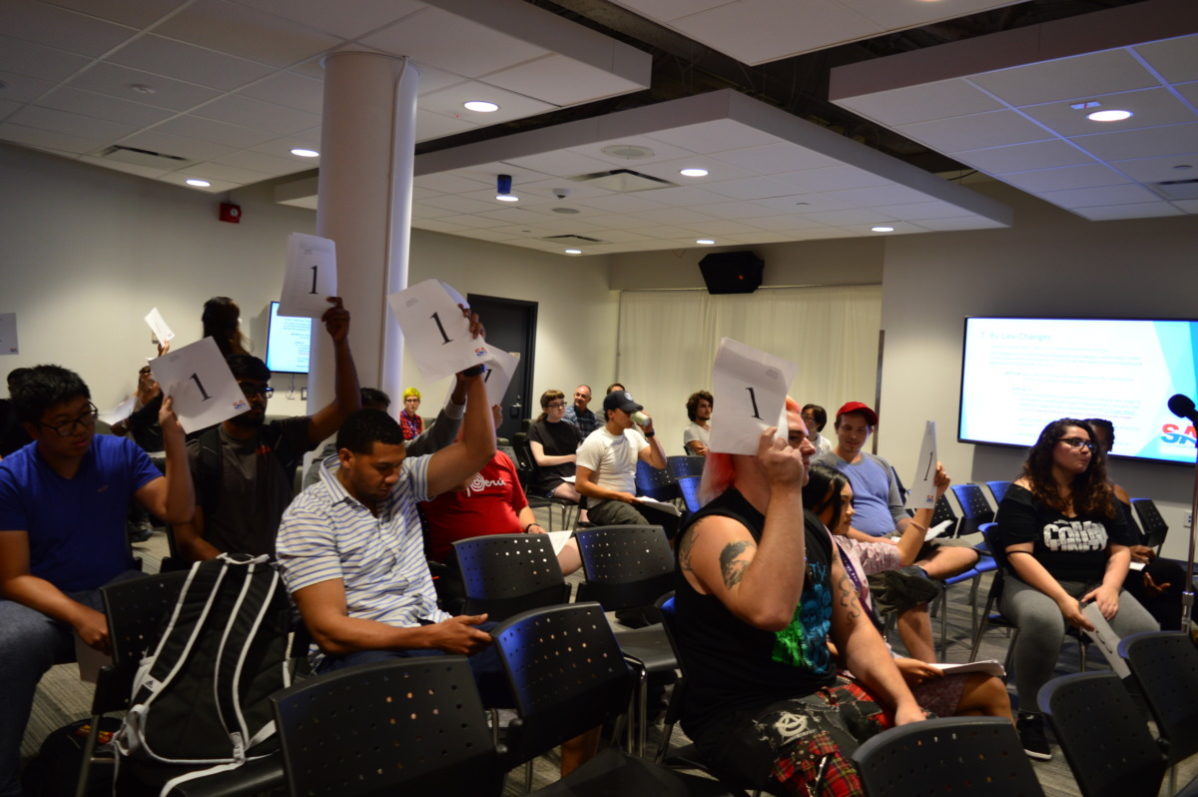Proposed bylaws would have compensation for education and constituency roles fall from $3,705 to $2,000 a year
Proposed bylaw changes would alter the pay and responsibilities of the education and constituency representation positions on the Student Association (SA) board.
The bylaws, which are to be voted on by George Brown College students at tomorrow’s Annual General Meeting, would see the positions change from having requirements of five hours a week and pay of up to $3,705 per year to $2,000 a year. If passed, the changes will take effect on May 1, 2018.
The SA funds The Dialog.
Leslie Van Every, the SA’s First Nation, Métis and Inuit students’ representative, characterized the proposed changes as less hours and responsibilities for constituency positions.
“I think that lowering hours and wages for constituency reps is giving off the message that these roles that are not valued by the board,” she said.
Van Every, who is in her second term in the position, said that folks don’t apply for these positions because of the money, but rather to ensure there is programming and events for their constituency. But she said students still need good paying jobs “to make ends meet.”
“I don’t think that $2,000 a year will give them that opportunity so they might have to apply their time somewhere else,” she said. “And it’s really unfortunate because the constituency positions are usually the hardest positions to fill.”
In the 2017 SA general election 10 positions were uncontested. Of the acclaimed positions only three were not education or constituency representative positions.
In the ongoing SA byelections, five education and constituency representative positions were acclaimed. This follows five education and constituency representative positions being declared vacant this fall.
Executive members of the SA board declined to comment for this story.
At the spring general meeting last March, constituency and education representatives had their compensation reduced by 26 per cent while campus directors had their pay increased by 6 per cent. Executives had a 24 per cent wage increase at the spring meeting.
In the proposed bylaws, the executives would make $37,050 per year (pro-rated) up from $35,360 and the campus directors would make $8,320 (pro-rated) per year up from $7,410.
Acclaimed business representative Kevin Yu said he did not have a strong reaction to the proposed changes to the education roles, because the positions are already flexible.
“I don’t see the responsibility (of business representative) confined within school grounds,” he said. “And I personally plan to put in more time outside of the school to reach out to partners that would benefit the students.”
Yu added that good SA representatives “go above and beyond” the expectations of their roles.
“It wouldn’t do the position justice to value it based on what the hours are and the minimum responsibilities,” he said.
Matthew Mokedanz, who was acclaimed as the construction, engineering technology representative in October, prefers the current structure of the position and doubts he would run again if the bylaw changes pass.
“It looks like they’re taking a position that was well thought out, well detailed in the responsibilities and they’re watering it down.”
Mokedanz said he can’t attend the general meeting tomorrow, but is hoping to organize a proxy to vote ‘no’ on the proposed bylaw changes.
There is also proposed new language in the bylaws that would allow all students who are members of the SA to petition the board to place a motion on the a meeting of members. Previously, the only way items were added to the agenda was for a board member to make a motion at a board meeting.
The general meeting is scheduled to run from 11 a.m. to 1 p.m. on Thursday in the Kings Lounge at St. James campus. All full-time students can vote on the items at the meeting.
Correction: An earlier version of this article had an incorrect annual pay for the SA’s constituency and educational representatives. At their usual hours of five per week, the reps would make $3,705 over the year.



